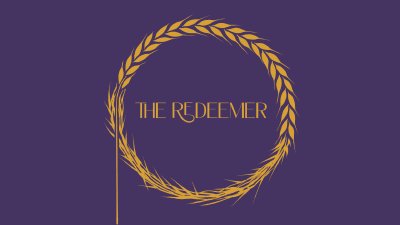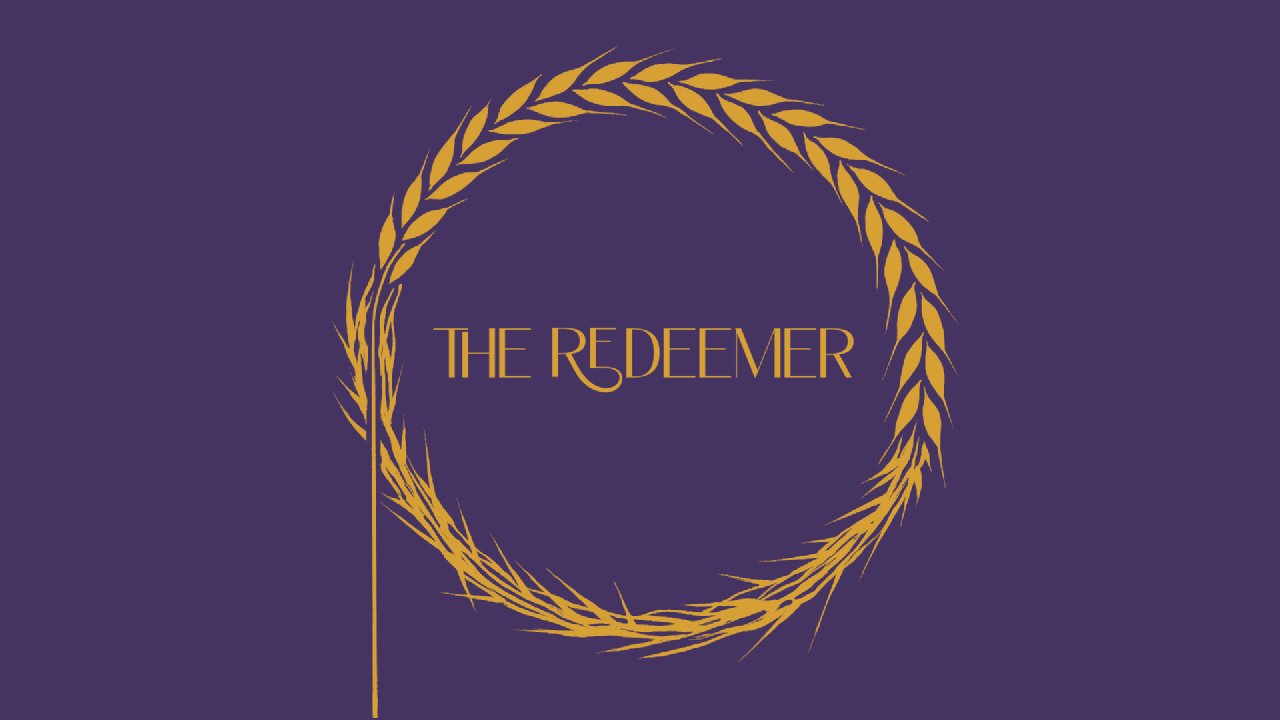This week someone on staff observed that the closer we got to the end of Vacation Bible School, the happier I looked. I suppose that’s true, but don’t get me wrong: I don’t dislike VBS, or kids! In fact, I think this is one of the most important things we do all year, and despite my personal inability to manage kinder-chaos, we have a whole team of amazing people who are uber competent in that area. It brings me abiding joy to see children being given the Word of God in their own imaginative idiom. For example, the VBS theme verse for Wednesday (delivered by a talking monkey) was taken from 2 Corinthians 1:3-4, a personal favorite of mine:
Blessed be the God and Father of our Lord Jesus Christ, the Father of mercies and God of all comfort, who comforts us in all our affliction, so that we may be able to comfort those who are in any affliction, with the comfort with which we ourselves are comforted by God.
I still remember the first time these verses really impacted me. A few years ago, I was with some fellow pastors at an event being hosted by George Robertson of our founding church, Second Presbyterian in Memphis. George had just lost his mother, and someone expressed their concern that he was having to lead this gathering in his bereavement. He replied with gratitude for their care and quoted this verse to us. It’s not that he wasn’t grieving, nor that he had been able to compartmentalize the pain and focus on his task. Rather, it was that he had made it his aim to give to us only what he was receiving from Christ in the midst of his own deep neediness. Let me tell you, it was more than enough.
I have found this to be especially true as I learn how to parent an adolescent. My eldest daughter rarely needs me to fix whatever is afflicting her. She just needs to be seen by someone who understands what it feels like to be living in between childhood and adulthood and has recovered from the trauma. Fortunately, her mother was once a little girl, and her father had his own truly awkward pubescence! We are therefore abundantly qualified to speak words from our experience – not dismissing or reframing – but just relating. We can see her where she is because we’ve been in similar spots too, and our presence tells her she’s not alone, nor an alien.
That reminds me of the way Boaz reached out to Ruth. Not that Boaz had ever been an orphan or a widow, or a foreigner (though his family tree did indeed bear its fair share of scandal). Paul tells the Corinthians that the particular comfort we’ve received is enough to then comfort others in any affliction. Even if their pain is not identical to our own, there is a mercy that meets us both. Boaz could be a redeemer because he too had been redeemed; a welcomer because he too had been welcomed. How do we know he’d been redeemed and welcomed first? Well, we’re going to talk about that this Sunday, and hopefully get a few handles on how we too can turn the ways in which we've been cared for by God into powerful care for others.
- josh

Acting with Authority
June 13, 2021 • Rev. Joshua Smith • Ruth 4:4–14
Love and Lament
May 30, 2021 • Rev. James M. Holland • Ruth 1:19–21, Ruth 1:6–14
It was not supposed to be like this! How could it be? How could this happen? Or better yet, how could a good God who is also in control of all things allow this kind of thing to happen to me? The gap between what God had promised and my present reality were so far apart, I didn’t know what to do. I later would sit in my study and, in hurt and loss, accuse God of messing up my life. Yes, accuse him of being out to get me. Was I off-base in this? Well, even a cursory reading of the Psalms would suggest I was in good company. Shocking, isn’t it? Over one-third of the inspired prayers in our prayer book are people accusing God, bringing charges against him, wondering if he is there or if he has abandoned them. Shocking, because our culture doesn’t process deep hurt very well. We are more stoical than biblical in this. This Sunday we are forced to deal with the brutal language of Naomi as she accuses God of messing up her life. She refuses to go quietly into that good night. Is her bitter lament the ravings of a bitter woman or of a woman who has loved well and been broken by it? Does God accuse her in this or is he quietly loving her and sending messengers of his love to her? That is what is before us in the book of Ruth this Sunday—love and lament. If you dare to love like God loves, like we see Jesus love, you will be broken. Lament is the language we learn in the Bible that helps us process our pain. As one writer says,“Lament is the honest cry of a hurting heart wrestling with the paradox of pain and the promise of God’s goodness…Lament stands in the gap between pain and promise.” (Mark Vroegop, Dark Clouds Deep Mercy) It is Memorial Day weekend and lots of you will be traveling. Think of me, I will be building a fence for our new puppy who is supposed to arrive in the Holland house next month. Yes, it is true––another thing I swore I would never do again has come to pass. My experience with dogs is long and dark, to the point that I made rash vows to never own one again—ever!! It is true I am viewed by some as the Scrooge of dogs. Then something happened that I never anticipated. I have a little dog lover in my house and yes, love does things, even to Scrooge. It is true, I have lamented this prospect, but as we will see in lament, it is “prayer in the meantime,” it is never final. Our final prayer is always “Hallelujah!” I am not there quite yet, but watching the joy in my daughter as watches videos of these four week old puppies is getting me there—fast! Hope to see you Sunday, live and in person, or via livestream. Blessings, Jim
The True King
July 25, 2021 • Rev. James M. Holland • Ruth 4:17–22
There are mixed reviews about epilogues among those who love a good story. Some people think they are a waste of time. That, after the story ends, everything resolves, and epilogues detract from the story. Others appreciate an afterword that gives some account years later, just a word or so that assures you that the characters are doing well and thriving. Me, I like them. I do want to peer into the future of characters I have grown to care about and know that all is well with them. But what if the epilogue is a genealogy? What a downer for us! Or is it? In our last lesson on Ruth, we have a genealogy of ten names, most of whom we don’t even recognize. On the surface it doesn’t look like much, but what if this list is telling us something about the story behind the story? What if it is reminding us that, even with the coming of David, we are not seeing the true king? What if we are meant to look at some of the names, even considering the ones that are omitted, and marvel that the story even made it to this point at all? What if it is showing us that behind all kingship is the True King of the universe, so determined to bring about his purposes that he will carry them forward even in the midst of the sin and unfaithfulness of his people? That or something like that is on full display in our epilogue. While these ten names mean little to us, they scream the power and grace of the God who holds the universe and, yes, our very lives in his hands. It reminds us that, as G. K. Chesterton said, “The church has all but gone to the dogs at least 6 times in history and each time it was the dogs who died.” A good word for us. Especially when we live in a time much like Ruth and Boaz did, where everyone does what is right in their own eyes. I need to hear that often, and I suppose you do as well. So join us on Sunday, live and in person or via livestream as we wrap up our series on the book of Ruth. Blessings, Jim


There Is a Redeemer!
July 18, 2021 • Rev. James M. Holland • Ruth 4:1–17
[No audio/video due to technical difficulties. Our apologies!] We might have called our study this Sunday, “Who gets the girl?” We are left hanging at the end of chapter three, and we do not know if the story will end as a comedy or a tragedy. However, the shape of the book of Ruth is so familiar to life, is it not? So much of what Naomi does is just “muddling in the right direction”, even when she is empty and has no idea how her story will end. Ruth has her own grief and loss, as well; she is no stranger to pain and the brokenness of the world, yet she too continues to do “the next right thing.” Boaz is an older man, not married, and he too has his share of crosses to bear. In the midst of a culture where everyone does what is right in their own eyes, his steadfast determination to do what is right in God’s eyes has cost him financially and reputationally. No doubt many on the outside looking in wonder at his refusal to grasp at his heart’s desire to have Ruth for his wife. I’ll bet he doesn’t sleep as he considers the coming business of confronting the redeemer that has a closer claim on his beloved. So much waiting, so much hardship, so many choices. Yes, it is familiar. But it is also hopeful, is it not? While psychologists have often noted that one of the most unhealthy things we can do is to constantly avoid pain, here in this story we see pain, loss, uncertainty, and sadness not as an aberration in life, but the very stuff of life. Such are the wages of sin and the call to live faithfully in a fallen world. The big themes of Ruth––rest and redemption––take place within the messiness of life. Tension in every chapter drives the story. Yes, we know this story; each of us are deeply acquainted with this plot. So how does it resolve? Join us Sunday as we essentially wrap up the book of Ruth. There will be an epilogue to follow, but most of our questions will be answered this week. Isn’t it interesting that the drama of redemption we find in the book of Ruth is played out as a romance? Will Boaz get his bride? This story reminds us of another great Redeemer and what He endured to woe and win his Bride! Blessings, Jim



